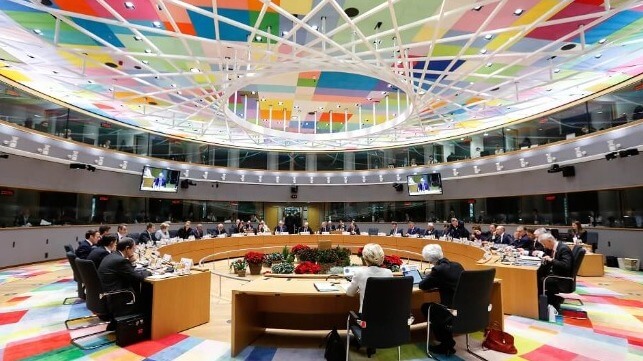Provisional ETS Agreement Welcomed by European Shipowners

European shipowners have welcomed the outcome of trilogue negotiation and the provisional agreement on the EU ETS maritime. The Parliament and the Council have embraced the calls of the industry stakeholders to earmark EU ETS revenues back to the maritime sector to support its energy transition. At least 20 million ETS allowances, which correspond to 1.5 billion Euro under the current ETS carbon price, will be allocated to maritime projects under the Innovation Fund. The provisional agreement on shipping is subject to an overall agreement on the ETS revision in late December.
Established in 2005, the EU ETS was the first emissions trading system in the world and remains the largest greenhouse gas emissions trading system across multiple countries and multiple sectors. It operates as a cap and trade system: a maximum amount of allowances is available in the scheme and these are allocated to participants either via free allowances or auctions, where participants purchase allowances. If the allowances which a particular participant has are insufficient to meet its needs, then it has a choice: to reduce carbon emissions to fall within its allowances or to purchase further allowances which are traded on a secondary market. Shipping has not, historically, been included in the EU ETS, but the draft legislation released on 14 July 2021 as part of the revised green deal changes that, including maritime emissions within the scheme.
“European shipowners welcome the increased climate ambition of the ‘Fit for 55’ package, recognising that the climate crisis is one of the greatest economic and environmental challenges faced by our society," Sotiris Raptis, ECSA’s Secretary General, aid. "Decarbonising shipping is not a question of ‘if’ but a question of ‘how’. Setting aside part of the ETS revenues for maritime is a victory for the decarbonisation of the sector. Dedicated support through the Innovation Fund is key to bridging the price gap with clean fuels, improving the energy efficiency of ships, fostering innovation, and building the infrastructure in ports. We look forward to working with the Commission and the stakeholders to develop effective tools for the industry’s transition.”
ECSA has also welcomed the upholding of the polluter-pays principle through mandatory requirements for the pass-through of the EU ETS costs to the commercial operators of the vessels. The phase-in period and the gradual inclusion of emissions from shipping over a three-year period is also crucial to ensure a smooth transition for the sector. The co-legislators also agreed on special provisions for ice-class vessels, small islands, and outermost regions.
Jim Corbett, the World Shipping Council’s environmental director for Europe highlighted the need for investment to facilitate the sector’s transition to zero-carbon fuels. “We are ready, and we hope that the EU ETS for maritime will help drive investment in renewable energy as well as in the supply networks needed for the alternative maritime fuels necessary to make the transition,” he said.
